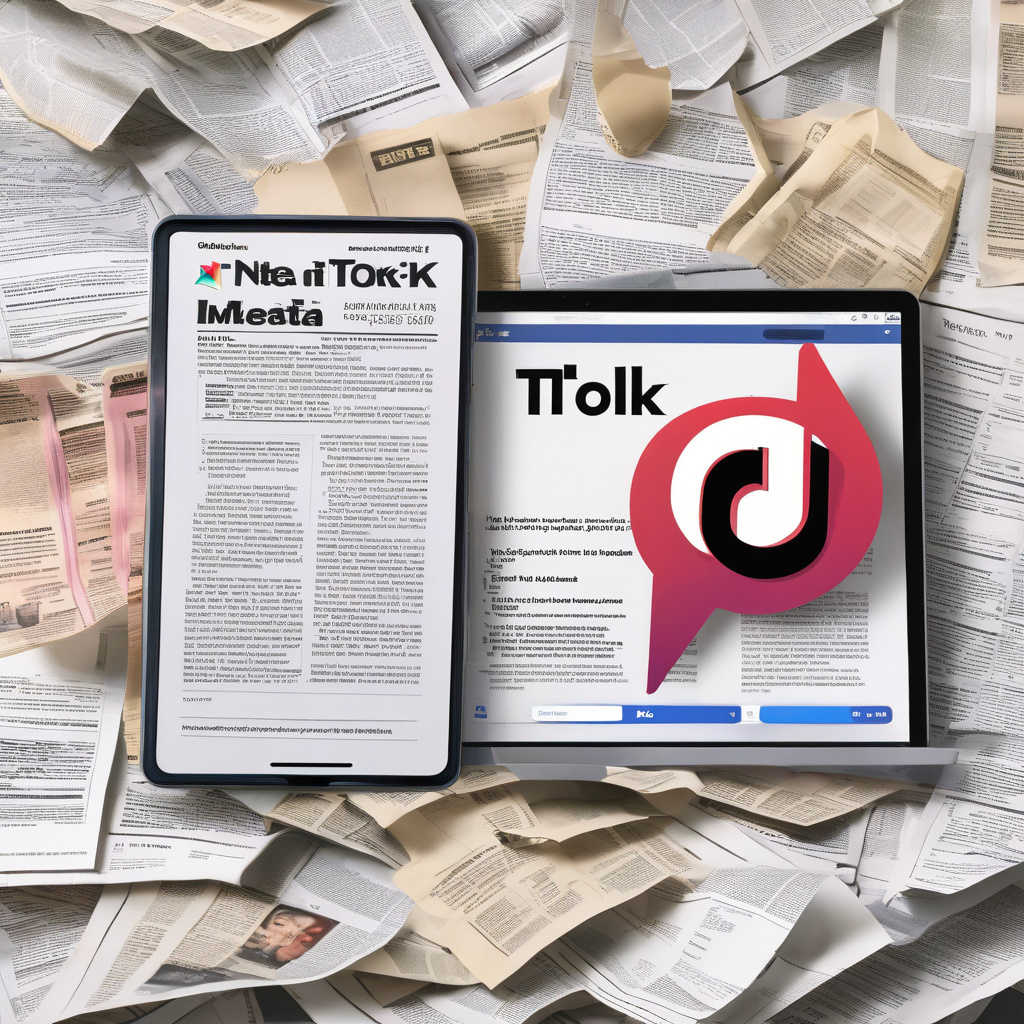Meta’s Alleged Strategy: Allowing TikTok’s Growth to Dilute FTC’s Antitrust Case
As Meta, formerly known as Facebook, gears up for a high-stakes trial regarding alleged antitrust violations, a compelling theory has emerged. Could Meta have strategically allowed TikTok to flourish in the U.S. market to potentially dilute the Federal Trade Commission’s (FTC) case against the social media giant?
The timeline of events is crucial in understanding this theory. TikTok, a Chinese-owned short-form video app, started gaining significant traction in the United States around 2018. This growth posed a direct challenge to Meta’s dominance in the social media landscape, particularly among younger demographics. As TikTok surged in popularity, Meta faced intensifying scrutiny over its business practices, including allegations of anticompetitive behavior and privacy concerns.
Fast forward to the present day, Meta finds itself in the crosshairs of the FTC, which has filed a lawsuit seeking to break up the company. The case centers on Meta’s alleged monopolistic control over social networking markets, with the company standing accused of stifling competition through its acquisitions and conduct.
Against this backdrop, some industry observers have raised an intriguing question: Did Meta strategically allow TikTok to thrive in the U.S. as a potential defense strategy against the FTC’s antitrust allegations?
One could argue that TikTok’s rise provided Meta with a convenient narrative to counter claims of monopolistic behavior. By pointing to TikTok’s success as evidence of a competitive social media landscape, Meta could potentially deflect accusations of stifling innovation and competition. Moreover, the existence of a viable alternative to Meta’s platforms could weaken the FTC’s argument that the company holds undue market power.
However, the reality is far more complex. While TikTok’s growth undoubtedly reshaped the social media industry, it is unlikely that Meta orchestrated or facilitated this development to preempt antitrust scrutiny. The dynamics of tech innovation and consumer preferences played a significant role in TikTok’s ascent, with the app offering a fresh and engaging user experience that resonated with a global audience.
Furthermore, Meta’s own missteps and controversies, such as the Cambridge Analytica data scandal and concerns over misinformation on its platforms, have fueled calls for regulatory intervention. These factors, rather than a calculated strategy involving TikTok, have contributed to the heightened antitrust scrutiny facing Meta.
In the realm of antitrust law, proving anti-competitive conduct requires a comprehensive analysis of market dynamics, consumer welfare, and corporate behavior. While TikTok’s emergence as a major player in social media may have indirect implications for Meta’s legal defense, the core issues at the heart of the FTC’s case against Meta are rooted in the company’s actions and market dominance.
As the legal battle between Meta and the FTC unfolds, the role of TikTok in shaping the competitive landscape of social media will undoubtedly feature in the proceedings. However, attributing TikTok’s growth solely to Meta’s alleged strategic maneuvers oversimplifies the complex interplay of market forces and regulatory challenges facing the tech industry.
In conclusion, while the theory of Meta leveraging TikTok’s growth to dilute the FTC’s antitrust case may hold some surface appeal, the reality is nuanced and multifaceted. The outcome of the legal showdown between Meta and the FTC will hinge on a detailed examination of the company’s business practices and their impact on competition and consumer welfare.
#Meta, #TikTok, #FTC, #Antitrust, #SocialMediaStrategy
